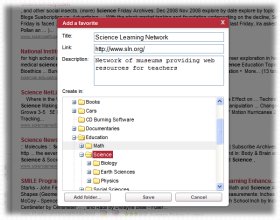|
Education
Web
Viewing 1-3 of 3 total results
Microsoft Word - stdmathfrtpg.docmathstdfrtpg.pdf
as the basis for the Kansas Mathematics Assessments through the spring of 2005. The Revision Process At the May 2002 meeting of the Kansas State Board of Education, the State Board directed that academic standards committees composed of stakeholders from throughout Kans...
1
0
as the basis for the Kansas Mathematics Assessments through the spring of 2005. The Revision Process At the May 2002 meeting of the Kansas State Board of Education, the State Board directed that academic standards committees composed of stakeholders from throughout Kansas were to be convened for the curriculum areas defined by state law, and, at this time, only reading, writing, and mathematics. The mathematics committee was charged to: 1) review the current standards document. 2) review
1
0
http://www.ksde.org/LinkClick.aspx?fileticket=RNNsD%2fLrM54%3d&tabid=141&mid=8017&forcedownload=true#page=7
www.ksde.org/LinkClick.aspx?fileticket=RNNsD%2fLrM54%3d&tabid=141&mid=801...
as the basis for the Kansas Mathematics Assessments through the spring <span class="highlight">of</span> 2005. The Revision Process At the May 2002 meeting <span class="highlight">of</span> the Kansas State Board <span class="highlight">of</span> Education, the State Board directed that academic standards committees composed <span class="highlight">of</span> stakeholders from throughout Kansas were to be convened for the curriculum areas defined by state law, and, at this time, only reading, writing, and mathematics. The mathematics committee was charged to: 1) <span class="highlight">review</span> the <span class="highlight">current</span> standards document. 2) <span class="highlight">review</span>
Microsoft Word - mathstdrev0703.docmathstdrev0703.pdf
as the basis for the Kansas Mathematics Assessments through the spring of 2005. The Revision Process At the May 2002 meeting of the Kansas State Board of Education, the State Board directed that academic standards committees composed of stakeholders from throughout Kans...
1
0
as the basis for the Kansas Mathematics Assessments through the spring of 2005. The Revision Process At the May 2002 meeting of the Kansas State Board of Education, the State Board directed that academic standards committees composed of stakeholders from throughout Kansas were to be convened for the curriculum areas defined by state law, and, at this time, only reading, writing, and mathematics. The mathematics committee was charged to: 1) review the current standards document. 2) review
1
0
http://www.ksde.org/LinkClick.aspx?fileticket=9Of%2f53hRla8%3d&tabid=141&mid=8017&forcedownload=true#page=7
www.ksde.org/LinkClick.aspx?fileticket=9Of%2f53hRla8%3d&tabid=141&mid=801...
as the basis for the Kansas Mathematics Assessments through the spring <span class="highlight">of</span> 2005. The Revision Process At the May 2002 meeting <span class="highlight">of</span> the Kansas State Board <span class="highlight">of</span> Education, the State Board directed that academic standards committees composed <span class="highlight">of</span> stakeholders from throughout Kansas were to be convened for the curriculum areas defined by state law, and, at this time, only reading, writing, and mathematics. The mathematics committee was charged to: 1) <span class="highlight">review</span> the <span class="highlight">current</span> standards document. 2) <span class="highlight">review</span>
systems that have a countable (discrete) number of elements. With the advent of modern technology, discrete (discontinuous) models have become as important as continuous models. In this course, the main focus is problem solving in a discrete setting. Techniques that are n...
1
0
systems that have a countable (discrete) number of elements. With the advent of modern technology, discrete (discontinuous) models have become as important as continuous models. In this course, the main focus is problem solving in a discrete setting. Techniques that are not considered in the current traditional courses of algebra, geometry, and calculus will be utilized. As students solve problems, they will analyze and determine whether or not a solution exists (existence problems), investigate how many
45
0
http://www.doe.virginia.gov/VDOE/Superintendent/Sols/mathsol2009.pdf#page=45
www.doe.virginia.gov/VDOE/Superintendent/Sols/mathsol2009.pdf#page=45
systems that have a countable (discrete) number <span class="highlight">of</span> elements. With the advent <span class="highlight">of</span> modern technology, discrete (discontinuous) models have become as important as continuous models. <span class="highlight">In</span> this course, the main focus is problem solving <span class="highlight">in</span> a discrete setting. Techniques that are not considered <span class="highlight">in</span> the <span class="highlight">current</span> traditional courses <span class="highlight">of</span> algebra, geometry, and calculus will be utilized. As students solve problems, they will analyze and determine whether or not a solution exists (existence problems), investigate how many
|
